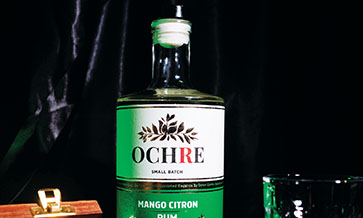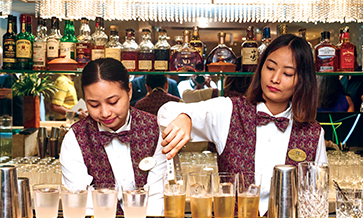In the lush valleys of southern Peru, every year between March and April, grapes designated for Pisco are harvested, fermented and distilled in order to be enjoyed by June.
Pisco Quebranta is 100% distilled Quebranta grape juice. This is the widest grape varietal grown in Peru to produce Pisco. It is a non-aromatic grape, producing the least aromatic Pisco.
Dryer in style, it is very elegant and smooth, still boasts subtle aromas and flavours of sweet dry fruit with some spices leading into a seductive long finish.
To introduce this varietal to Indian audiences Monika Enterprises, the exclusive distributor of Tabernera La Botija in the country, organised a Bartender Brawl in New Delhi recently, in association with the Peruvian Embassy in India.
Ahead of the competition, a master class was conducted by the brand ambassador, Ms Naomi Fletcher, to bring more awareness and promote Pisco, the national drink of Peru.
Peruvian Pisco regulations allow for the spirit to be distilled from any one of (or a blend of) eight local grape varieties. Each imparts a slightly different characteristic to the finished spirit, but all are distilled using the same methods: stainless steel and glass are the only containers that Peruvian Piscos ever come into contact with.
They may be distilled only once, and never diluted. No wood aging or any sort of manipulation other than the blending of varietals is allowed.
The competition began with participants going through regional rounds in best bars in Mumbai and Delhi, where they were required to make the best cocktails using Pisco. Six finalists were put through a set of three intensive rounds through the course of a day, which included making a unique Pisco cocktail.
The winner of the India finals is Agnieszka Rozenska from The HongKong Club (Delhi). She will go on to represent India for the Asia Finals that will be held in Dubai soon. Nilesh Kachadiya and Lokesh Kumar were adjudged runner-up and second runner-up for the event.














